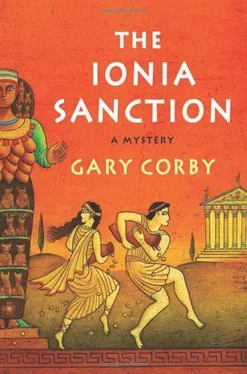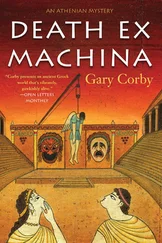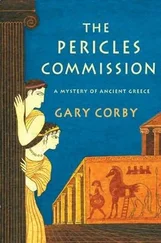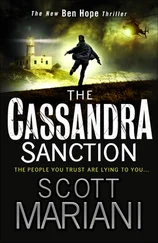Gary Corby - The Ionia Sanction
Здесь есть возможность читать онлайн «Gary Corby - The Ionia Sanction» весь текст электронной книги совершенно бесплатно (целиком полную версию без сокращений). В некоторых случаях можно слушать аудио, скачать через торрент в формате fb2 и присутствует краткое содержание. Год выпуска: 2011, ISBN: 2011, Издательство: Macmillan, Жанр: Исторический детектив, на английском языке. Описание произведения, (предисловие) а так же отзывы посетителей доступны на портале библиотеки ЛибКат.
- Название:The Ionia Sanction
- Автор:
- Издательство:Macmillan
- Жанр:
- Год:2011
- ISBN:9780312599010
- Рейтинг книги:4 / 5. Голосов: 1
-
Избранное:Добавить в избранное
- Отзывы:
-
Ваша оценка:
- 80
- 1
- 2
- 3
- 4
- 5
The Ionia Sanction: краткое содержание, описание и аннотация
Предлагаем к чтению аннотацию, описание, краткое содержание или предисловие (зависит от того, что написал сам автор книги «The Ionia Sanction»). Если вы не нашли необходимую информацию о книге — напишите в комментариях, мы постараемся отыскать её.
The Ionia Sanction — читать онлайн бесплатно полную книгу (весь текст) целиком
Ниже представлен текст книги, разбитый по страницам. Система сохранения места последней прочитанной страницы, позволяет с удобством читать онлайн бесплатно книгу «The Ionia Sanction», без необходимости каждый раз заново искать на чём Вы остановились. Поставьте закладку, и сможете в любой момент перейти на страницу, на которой закончили чтение.
Интервал:
Закладка:
He said, “You’re going to Ephesus. I’ll arrange transport.”
That made me sit up. “Can’t we send the navy after the Phoenician?”
“Do you know how many ports there are in the Aegean Sea? No? Neither does anyone else, there are that many. We may have the largest navy in the world, but even we don’t have enough ships to cover every hiding place. Besides, we have two hundred triremes committed against Cyprus, and that’s the bulk of the fleet.”
It was true. Cyprus was still pro-Persian and agitating against Athens on the seas. Worse, the news from the fleet was not encouraging.
“Ephesus is the source of the letter. We can’t retrieve the letter, so find whoever sent it, and recover the information.” Pericles paused and studied me for a moment. “I’d have thought you’d be overjoyed to go to Ephesus. Isn’t that where your girlfriend is?”
“Diotima’s not my girlfriend,” I said.
“But she’s in Ephesus, is she not?”
So she was. Diotima was in Ephesus because she’d left me three months before, and I still hadn’t got over it.
Diotima was the result of a long-standing affair between one of our statesmen and a high-class prostitute. Not the most regular of pedigrees. Yet when her father had been murdered, Diotima had hunted down his killers with a relentless determination that would have done credit to a firstborn son, let alone a disregarded daughter. By the time the two of us had caught the killer, my heart was set. Diotima was the girl for me.
In Athens, such things are arranged between the fathers. I’d been so sure my father would agree to a betrothal that I’d told Diotima my intention before I asked him.
Then he’d said no. Father had thought only of the shame of his son married to the daughter of a noncitizen prostitute. When Diotima had eagerly pressed me next day, I’d had no choice but to tell her why she was not an acceptable bride. It was a conversation I cringed to recall.
Diotima disappeared without a trace. I was eventually driven to ask her mother, who told me she’d left for Ephesus. My girl had been a priestess of Artemis in Athens; now she was a priestess at the Artemision in Ephesus. I didn’t have to ask why she’d gone, nor why she’d left without a goodbye. I hadn’t heard a thing from her in the three months since. I’d thought never to hear from her again.
Pericles said to me, “You’ll be able to see her when you arrive.”
I wasn’t about to tell Pericles the last thing I wanted was to see Diotima. At least, not until I’d worked out what to say to her.
“Oh, and Nicolaos, you are invited to a symposium tomorrow night, at the home of Callias.”
Callias? He was the richest man in Athens; a man far above my station. “Whatever for?” I asked.
Pericles snorted. “Callias has about thirty years’ more experience with foreign missions than you do. Whatever advice he has, I suggest you take it.”
* * *
Any other man, when he’s been wounded in battle, visits a doctor at the gymnasium, an expert in treating sword cuts, spear punctures, broken bones, and bruises. The doctor tends the hero’s honorable wounds while his comrades in arms stand about, recounting his bravery on the field of battle and singing his praises.
I, on the other hand, having risked life and limb in the shadowy world of investigation, went home to my mother.
Phaenarete is a midwife. She sat me down with a bowl of hot water and a clean rag, and used bronze tweezers to pull out the splinters in my arms, one by one, all the while describing my various defects, intellectual and physical. It was a long list. Whenever she made a particular point she squeezed harder and I yelped. My mother told me not to be a baby.
When she finished she applied a sticky, smelly lotion to my forearms and told me to lie still and let the lotion soak in, or I would die of the flesh-eating sickness. “Which would be no less than your own fault,” she sniffed, and walked off, leaving me to feel sorry for myself.
I’d ritually cleansed my hands in the sea while I was at Piraeus. That allowed me to eat my fill, so I had a slave girl bring me yesterday’s bread soaked in wine, with olives, figs, and cheese. I lay there digesting, which gave my mind all too much time to replay the disastrous scene with Pericles and worry about my future.
I’d known Pericles would be angry, but the strength of his backlash had shocked me. I hadn’t noticed during the argument, because I’d been too concerned for myself, but now I recalled the dark rings under his eyes. His movements, always graceful in public, had been twitchy in the privacy of his office. The voice of Pericles was the most beautiful and serene instrument the world had ever heard, but with me he’d had the grating, angry tone of a cornered man. Pericles had looked and sounded like a man under pressure, and no wonder.
Pericles had come to the leadership of Athens at a moment of extreme crisis, when our new democracy had been only days old, and the man who founded it had been murdered. In the wake of the murder the city might have collapsed in civil war, but Pericles had stepped into the breach and saved us.
Pericles had inherited a city that barely functioned. Men loved the new democracy, but they didn’t know how to run it. Citizen committees had sprung up. It would have been nice if some of the committees had actually worked. Men couldn’t agree, officials overstepped their powers, gaps appeared where everyone thought someone else had been responsible for something. Fingers pointed in every direction. The democracy was like some giant machine with levers that didn’t fit and not enough oil to stop the friction. Pericles spent his days being the oil. He went from one committee to another, to persuade where he could, correct where he had to.
Then too, many cities had taken advantage of the turmoil within Athens to act against us. The army and navy were stretched beyond the limit. The agora seemed half empty. Women were conspicuous among the stalls because so many men were away, serving in the army or the navy. The stoas where men met to gossip and discuss politics were almost empty.
So if Pericles shouted at me because I had failed in the one task assigned to me, who was I to complain? On the other hand, like Pericles, I was new to my job, and I was an apprentice with no master from whom to learn, because no one before had taken the trade I’d assumed: to be an agent when the truth was needed. Wasn’t an apprentice permitted a few mistakes? It was all terribly unfair.
My twelve-year-old brother entered the courtyard.
He took one look at me and said, “What happened to you, Nico?”
I closed my eyes. “Go away, Socrates.”
He sat down beside me. “You get in a fight?”
“Yes, and the other guy got hurt too.”
“Did you win?”
“It was a draw.” I refused to admit Araxes had defeated me.
“You look like you’ll be lying there for days.”
“It’s only a few scratches. Anyway, I have work to do. I’m to go to a symposium tomorrow night at the home of Callias. Pericles invited me along.”
“Wow!” Socrates was right to wow. Callias and Pericles were not normally given to socializing with young men of no consequence.
“I want to go to the symposium too,” Socrates said, surprising me.
“In case you haven’t noticed, you’re still a child.”
“If I was a slave boy I’d be able to come, wouldn’t I?” he wheedled. “You’re taking an attendant, aren’t you?”
I was so young and inexperienced in the field of formal socializing that I hadn’t even thought about it. But Socrates was right. No citizen would dream of going to a symposium without at least one slave to see him home.
“Of course I meant to take an attendant,” I lied without hesitation. “I’ll ask Father for one of his slaves.”
Читать дальшеИнтервал:
Закладка:
Похожие книги на «The Ionia Sanction»
Представляем Вашему вниманию похожие книги на «The Ionia Sanction» списком для выбора. Мы отобрали схожую по названию и смыслу литературу в надежде предоставить читателям больше вариантов отыскать новые, интересные, ещё непрочитанные произведения.
Обсуждение, отзывы о книге «The Ionia Sanction» и просто собственные мнения читателей. Оставьте ваши комментарии, напишите, что Вы думаете о произведении, его смысле или главных героях. Укажите что конкретно понравилось, а что нет, и почему Вы так считаете.












